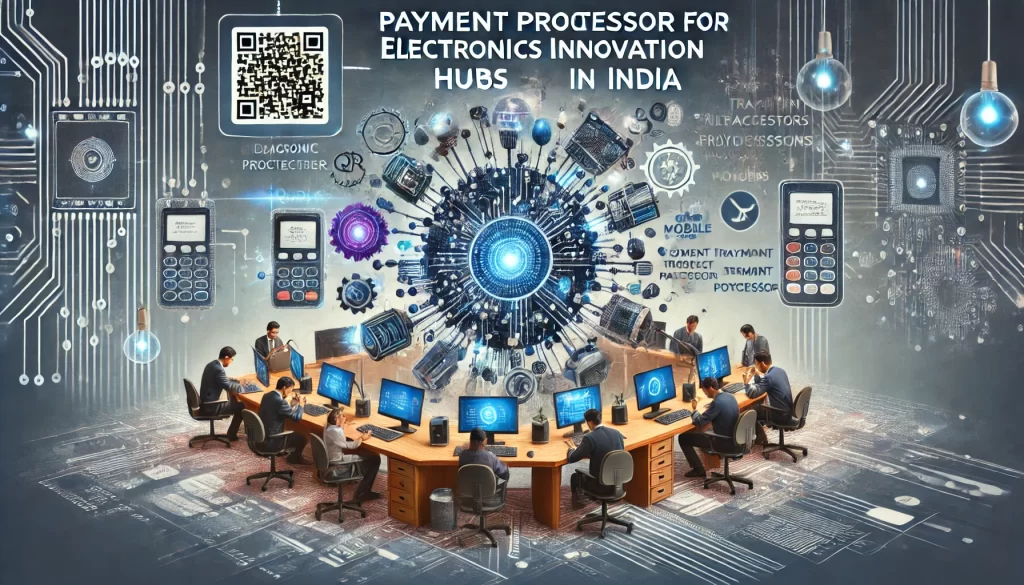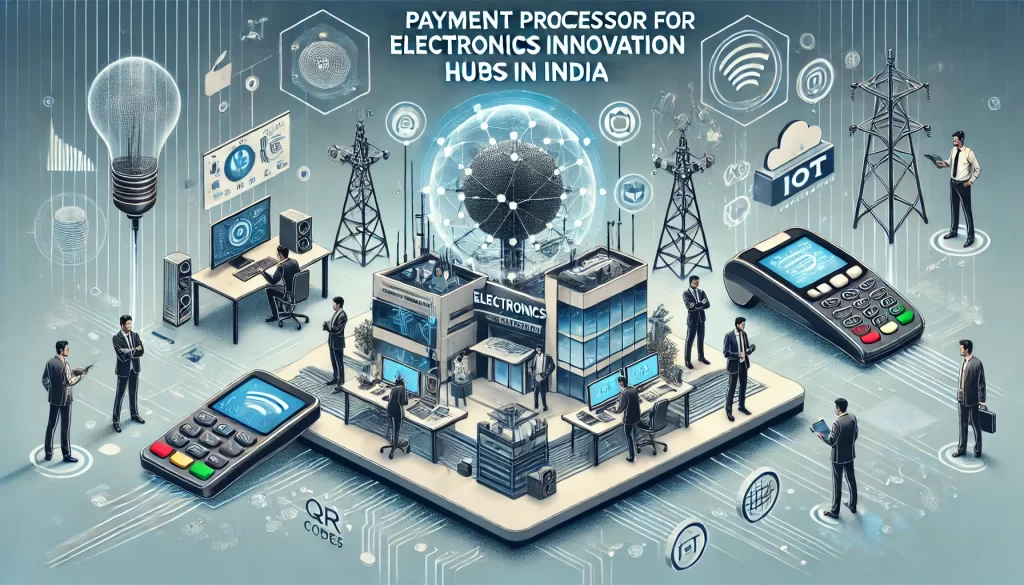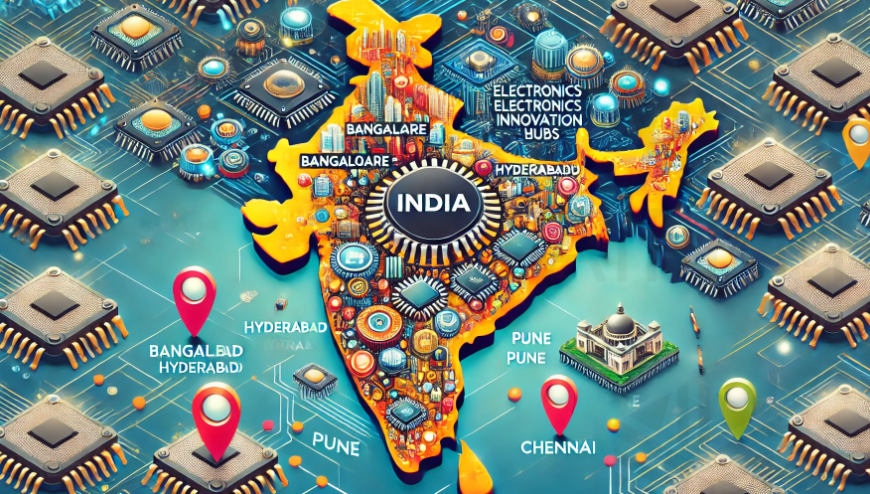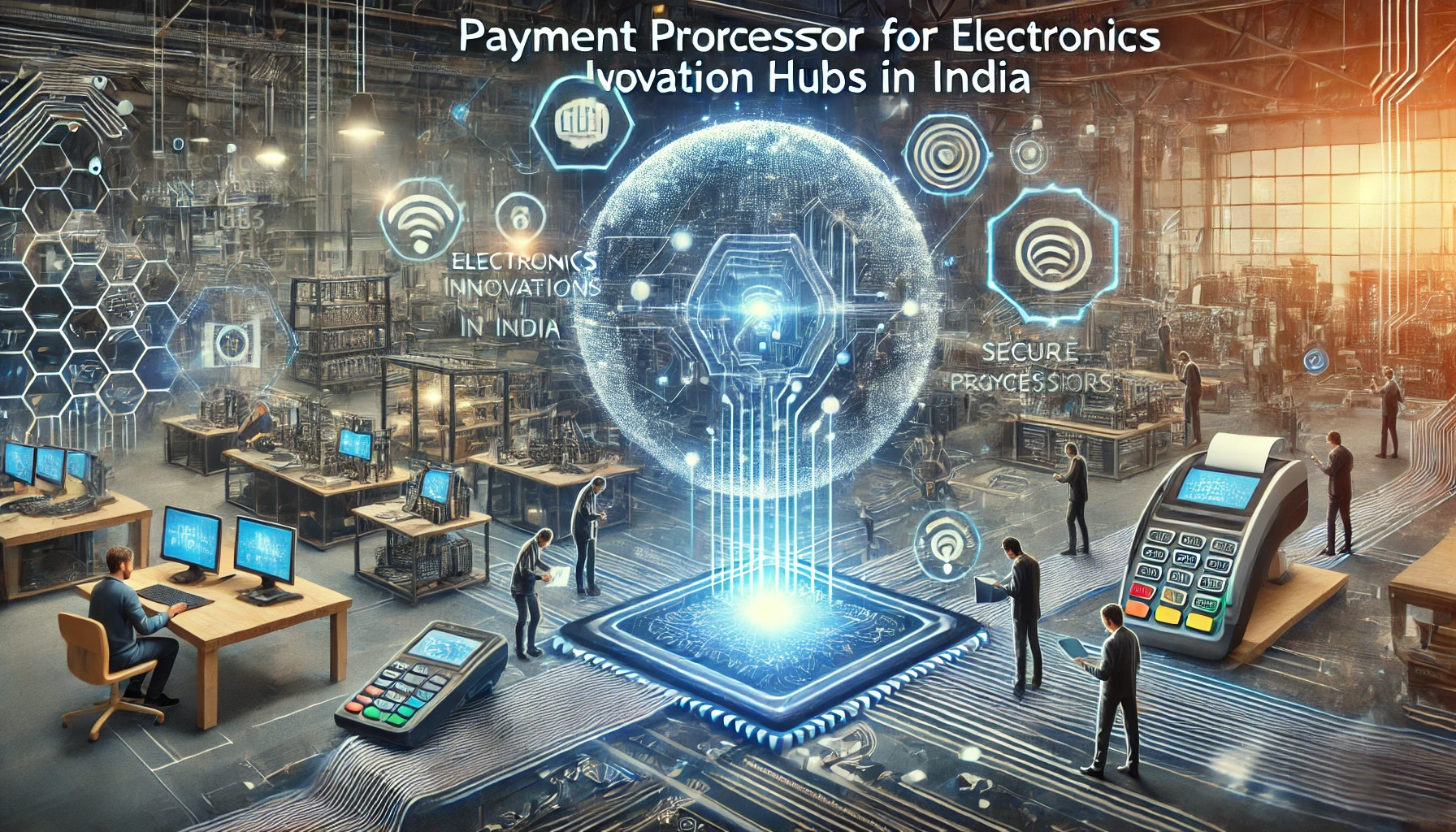AUTHOR: AYAKA SHAIKH
Introduction
The digital revolution has transformed the way we transact, making payment processors the backbone of modern economies. These technological marvels ensure seamless digital payments and are indispensable for e-commerce, retail, and countless other sectors. In this age of innovation, India is making waves as a hub for payment processor electronics, fueled by its thriving tech ecosystem and engineering expertise.
What are payment processors?
At their core, payment processors are systems that handle transactions between merchants and customers. They ensure that the payment is authorized, processed, and completed securely and efficiently.Payment processors can generally be categorized into two primary types.
- Front-End Processors: Connect merchants to card networks like Visa or Mastercard.
- Back-End Processors: Handle settlement of funds between banks.
By facilitating cashless transactions, these systems have become vital to modern commerce.
The Growth of Digital Payments in India
India has embraced digital payments like no other. The rise of the Unified Payments Interface (UPI) and government initiatives like Digital India have propelled the nation into a cashless economy.
Unified Payments Interface (UPI)
UPI has become a game-changer in India’s payment ecosystem, offering a seamless platform for instant money transfers. In 2023, UPI handled transactions worth over $10 trillion annually, a clear indicator of its widespread adoption.

Role of Fintech Players
Startups like Razorpay, Paytm, and PhonePe are driving digital payment adoption by providing user-friendly interfaces and robust backend systems. These companies rely on advanced payment processor electronics to deliver secure and lightning-fast transactions.
Cashless Economy Goals
India’s vision of becoming a cashless economy is evident through initiatives like Digital India. These efforts encourage the adoption of digital payment methods across urban and rural landscapes. UPI recorded over 8 billion transactions in a single month in 2023. Platforms such as Paytm and PhonePe have established themselves as widely recognized digital wallets.
This rapid adoption highlights the growing need for advanced payment processor technologies.
The importance of Electronics in Payment Processors
Although software often takes the spotlight, the hardware behind payment processors is just as essential. Robust electronics ensure transactions are fast, secure, and scalable.
Key Components in Payment Processor Electronics
- Microcontrollers:
These tiny chips handle data processing, enabling devices to execute transactions in milliseconds. - Encryption Modules:
Security is paramount in digital payments. Hardware-based encryption ensures sensitive data like card details remain protected. - NFC Chips:
Near Field Communication (NFC) technology has made contactless payments possible, offering convenience to users worldwide.

Innovation Demands
With increasing transaction volumes and rising cybersecurity threats, innovation in hardware is not just desirable but essential. Faster processors, enhanced memory, and energy-efficient components are shaping the future of payment technology.
India’s Position as a Global Innovation Hub
India’s emergence as a tech powerhouse is no coincidence. Factors contributing to this include:
- A massive talent pool of engineers and technologists.
- The establishment of IT parks and innovation centers[1].
- Supportive government policies like “Make in India.”
These factors have positioned India as a key player in payment processor electronics.
Key Electronics Innovation Hubs in India
India’s innovation in payment processor electronics is centered around several key cities, each with its own unique strengths.
Bengaluru
Known as India’s Silicon Valley, Bengaluru is home to global tech giants like Intel, Google, and Microsoft, alongside numerous startups working on cutting-edge technologies. The city’s focus on R&D makes it a leader in payment processor[2] electronics.
Hyderabad
Hyderabad is a major hub for IT and electronics manufacturing. Companies here specialize in producing components like NFC chips and microcontrollers, essential for payment devices.

Pune
Often overlooked, Pune is gaining traction as a hub for hardware innovation. The city’s tech parks host companies working on smart terminals and IoT-enabled payment solutions[3].
Noida
With its electronics manufacturing corridor, Noida is a key player in India’s payment processing ecosystem. Companies here focus on mass production of payment devices, ensuring affordability and accessibility.
Technologies Driving Innovation
These technologies are transforming fraud detection, ensuring secure and efficient transactions. Blockchain is revolutionizing payment processors by offering unparalleled security and transparency. Smart terminals are leveraging IoT to offer connected and intuitive payment solutions. Fingerprint and facial recognition technologies are set to redefine secure payments[4].
Challenges in Payment Processor Innovation
Despite its strengths, India faces challenges:
- High costs of adopting advanced technologies.
- Growing cybersecurity threats.
- Inadequate infrastructure in some regions.
Government Policies Supporting Electronics Innovation
The Indian government is taking a central role in driving innovation forward.
- Make in India Initiative: Encourages domestic manufacturing.
- Subsidies and Tax Benefits: Support startups and enterprises.
- Skill Development Programs: Build a workforce ready for the future.
Collaboration Between Startups and Tech Giants
Partnerships between startups and established companies are driving innovation[5]. These collaborations combine agility with experience, resulting in groundbreaking solutions.
The Future of Payment Processors in India
The future is bright for payment processors in India. Trends like AI integration, biometric security, and blockchain will continue shaping the industry, solidifying India’s position as a global leader.
Conclusion
India’s journey to becoming a hub for payment processor electronics is a testament to its innovation and resilience. With a supportive ecosystem and a vision for the future, the country is poised to lead the global payment technology landscape. As the world shifts further into a digital economy, India’s contributions will undoubtedly leave a lasting impact.
FAQs
- What are the top cities for electronics innovation in India?
Bengaluru, Hyderabad, Pune, and Noida are leading hubs. - How is AI influencing payment processors?
AI enhances fraud detection and automates transaction processes. - What challenges do Indian companies face in this domain?
High costs, cybersecurity threats, and infrastructure gaps are key hurdles. - The government supports innovation through initiatives such as Make in India and offering tax benefits to promote development.
- How does India compare globally in this space?
India is quickly establishing itself as a frontrunner, making substantial strides in technology and innovation.

